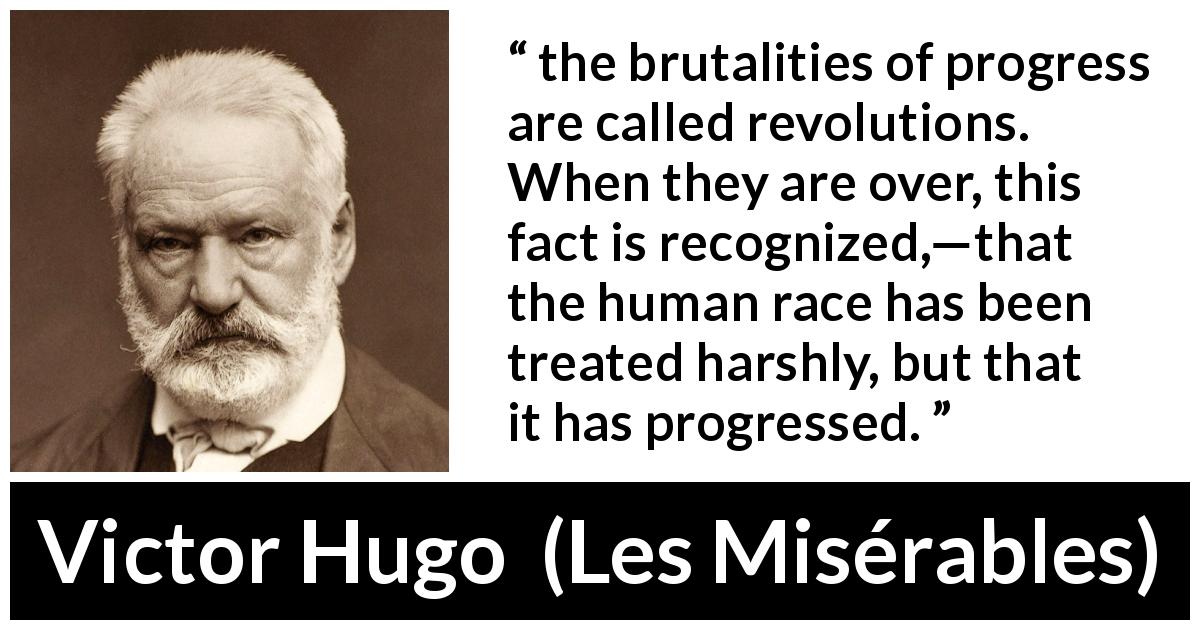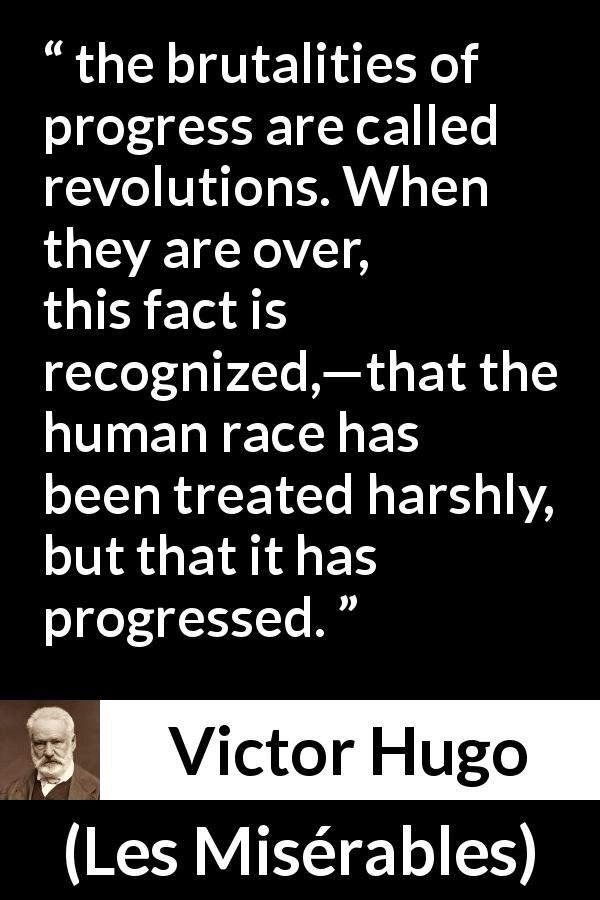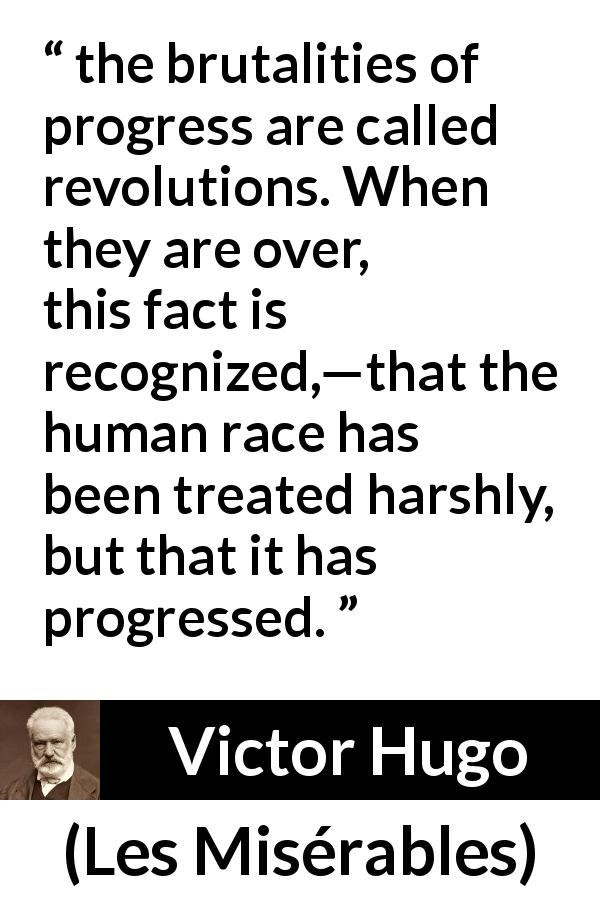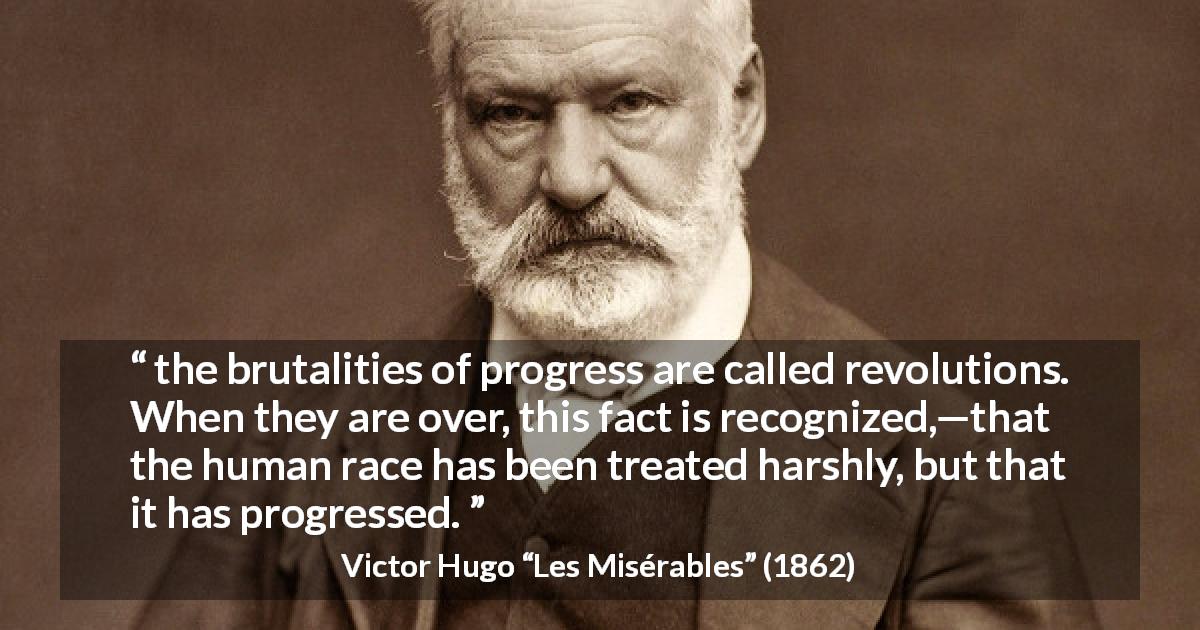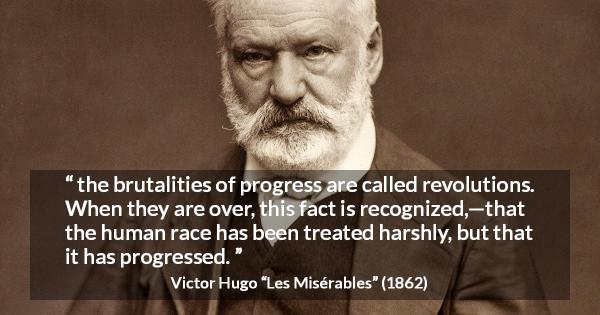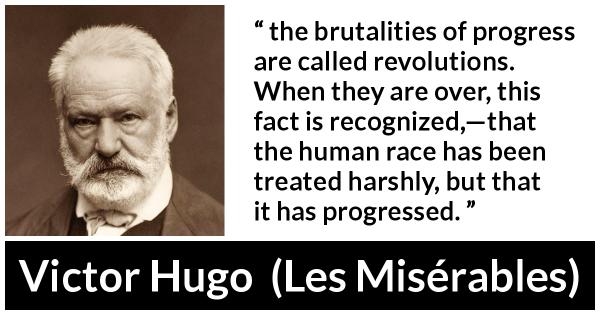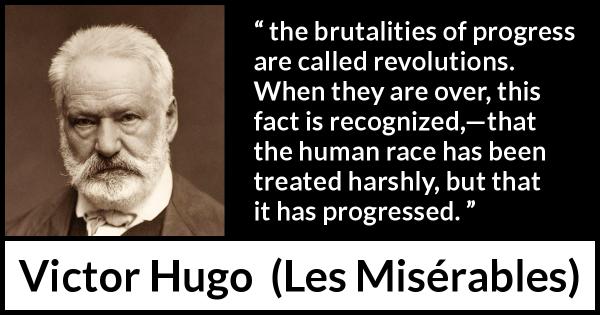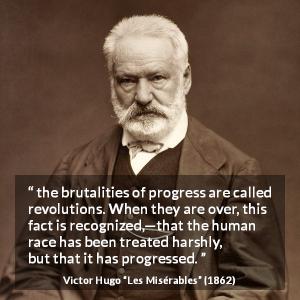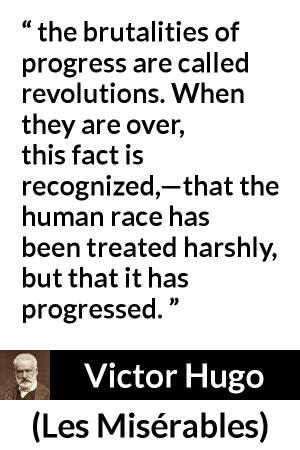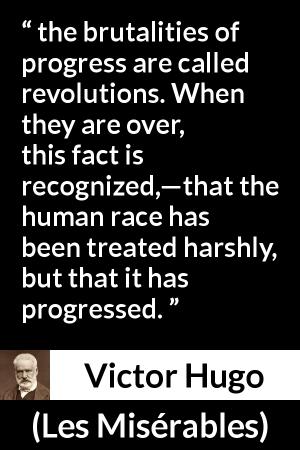“ the brutalities of progress are called revolutions. When they are over, this fact is recognized,—that the human race has been treated harshly, but that it has progressed. ”
Victor Hugo, Les Misérables (1862). copy citation
| Author | Victor Hugo |
|---|---|
| Source | Les Misérables |
| Topic | brutality revolution progress |
| Date | 1862 |
| Language | English |
| Reference | |
| Note | Translation by Isabel F. Hapgood in 1887 |
| Weblink | http://www.gutenberg.org/files/135/135-h/135-h.htm |
Context
“From its most terrible blows there comes forth a caress for the human race. I abridge, I stop, I have too much the advantage; moreover, I am dying.»
And ceasing to gaze at the Bishop, the conventionary concluded his thoughts in these tranquil words:— «Yes, the brutalities of progress are called revolutions. When they are over, this fact is recognized,—that the human race has been treated harshly, but that it has progressed.»
The conventionary doubted not that he had successively conquered all the inmost intrenchments of the Bishop. One remained, however, and from this intrenchment, the last resource of Monseigneur Bienvenu's resistance, came forth this reply, wherein appeared nearly all the harshness of the beginning:—” source
And ceasing to gaze at the Bishop, the conventionary concluded his thoughts in these tranquil words:— «Yes, the brutalities of progress are called revolutions. When they are over, this fact is recognized,—that the human race has been treated harshly, but that it has progressed.»
The conventionary doubted not that he had successively conquered all the inmost intrenchments of the Bishop. One remained, however, and from this intrenchment, the last resource of Monseigneur Bienvenu's resistance, came forth this reply, wherein appeared nearly all the harshness of the beginning:—” source
